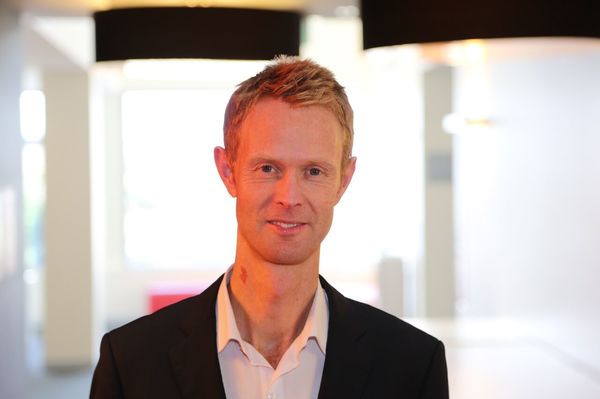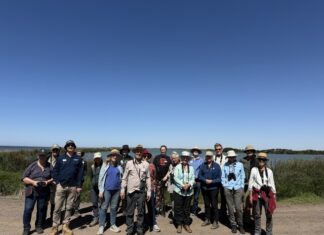Point Lonsdale professor Peter Vuillermin has received a $1.6 million grant for a 2000-child trial of medicine that could prevent recurring wheezing illnesses.
“The most common reason pre-school kids are admitted to hospital is wheezing illness,” he said.
“The families will be invested in getting a good answer for their children and the world. It’s real exercise in people power.”
As a Barwon Health paediatrician, Prof Vullermin had dealt with children suffering severe respiratory diseases, which were “frightening for parents and everyone involved”, he said.
The 48-year-old father-of-three said this was part of his motivation to apply for the grant.
The clinical trial will test a medication called OM-85, which uses dead parts of bacteria to stimulate the immune system, Prof Vullermin explained.
“There is evidence that kids from a rich microbial environment, like a farm with livestock, seem to be less at risk of wheezing illnesses.
“Most of the current asthma and wheeze medication is steroid-based.”
The immunostimulant worked in a similar way to a vaccine without targeting a specific disease, Prof Vullermin explained.
Various viruses caused the majority of wheezing illnesses, with other causes including pollen, food allergies and exposure to air, he said.
The OM-85 could also potentially reduce inflammation during wheezing illnesses, he added.
A successful trial could have huge health and financial benefits, as wheezing illnesses were an enormous burden on the Australian health system, Prof Vullermin said.
“This would be something they could go home with to prevent further occurrences.”
Eight previous studies had trialed OM-85 in preventing chest infection, Prof Vullermin said.
But he was only aware of one published study, of 70 children in Turkey, which had tested the medication for wheezing illnesses.
While the study had promising results, scientists needed to replicate the findings in larger numbers to draw significant conclusions, he said.
Deakin University and Barwon Health will lead the clinical trial in 35 hospitals through Children’s Inpatient Research Collaboration of Australia and New Zealand (CIRCAN).
Deakin received $5.89 million in grants from National Health and Medical Research Council towards projects, including Geelong-based research on malaria and depression.
Only about five per cent of applications nation-wide were successful, according to Prof Vuillermin.
“The vast majority would have been excellent (applications),” he said.
“One of the really hard things about the Australian system is how competitive it’s become.
“Australia’s research community is wasting huge amounts of time putting those applications together.”









